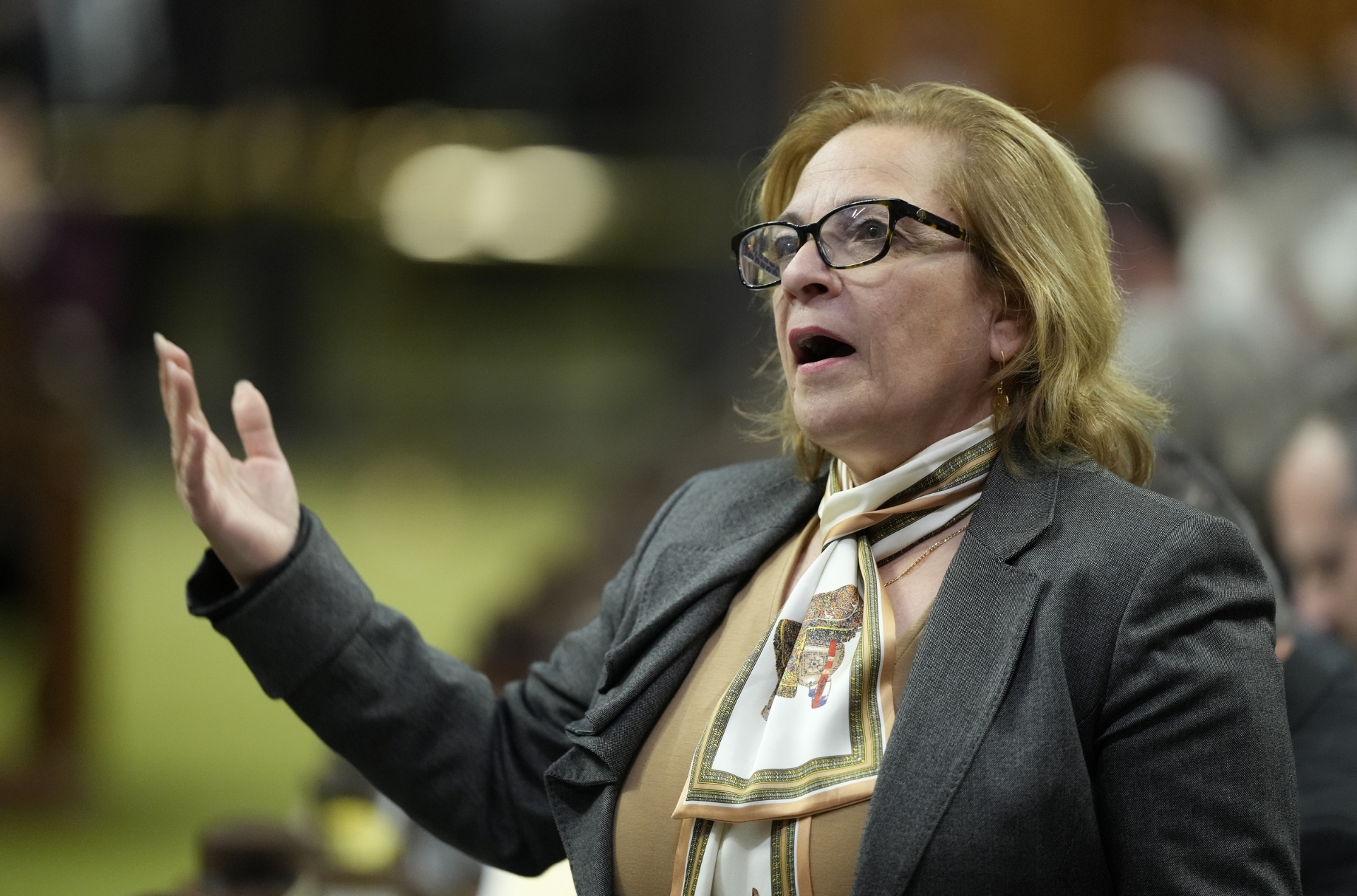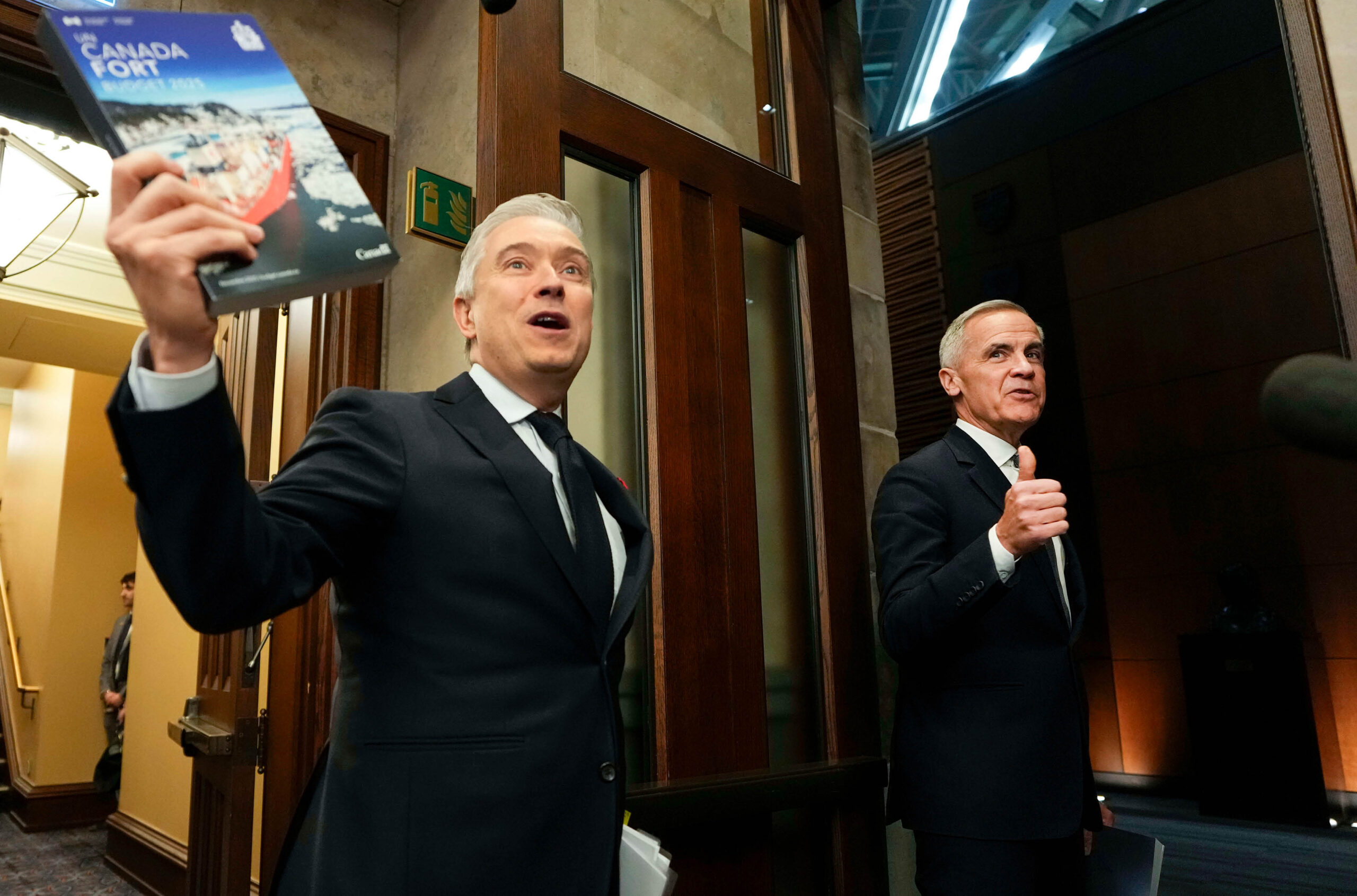Minister defends law enabling mass cancellation of international study permits
Aiming to shut down visa fraud, Immigration Minister Lena Diab faces grilling over broad powers granted in Bill C-12

Immigration Minister Lena Diab appeared before a House of Commons committee yesterday to defend a bill that would allow the federal government to cancel, alter or suspend foreign study permits en masse if doing so is deemed to be in the “public interest.”
Speaking to the House of Commons Standing Committee on Citizenship and Immigration, Minister Diab said that Bill C-12 would be used to target “people who are going to be committing large-scale fraud.”
“There’s been a number of international student frauds. The good news is, we are seeing that come down,” Minister Diab told the committee. “We are introducing integrity measures to strengthen the integrity of the international student program and better protect the students themselves, as well. … The point of the bill, but also the measures that were taken before, is that not only is the system catching fraud, but it is also deterring it.”
Bill C-12, also known as the Strengthening Canada’s Immigration System and Borders Act, would allow the Minister of Citizenship and Immigration, with the concurrence of the Minister of Public Safety and Emergency Preparedness, to mass cancel permits of students already in Canada and to suspend the processing of applications for new permits.
This power would also apply to temporary and permanent resident visas, electronic travel authorizations, and temporary work permits. The bill would also allow IRCC to share personal information and immigration status with other federal departments and agencies, as well as with provincial and territorial governments.
Minister Diab added that, if the bill is passed, regulations will be made that “address the unsustainable growth” in temporary residents in Canada, of whom foreign students form a part. She said the target levels for immigration will be included in the federal budget, to be tabled Nov. 4.
“Conflict, climate pressures and shifting migration patterns are driving unprecedented movement of people, and countries everywhere are adapting. We must also do so, responsibly, to uphold trust, maintain order and keep our system fair, efficient and sustainable. Bill C-12 is part of that work,” she said.
Minister grilled on “public interest”
Conservative MP Michelle Rempel Garner, the vice-chair of the committee, grilled Minister Diab on the broad power granted by the legislation, and the vague definitions of when that power could be used.
“Public interest isn’t defined,” Ms. Rempel Garner pointed out. “It seems like you’re trying to give yourself and your department more powers to correct mistakes in the system that they would have made in screening out potential fraud to begin with. … Essentially you’re asking Parliament to give your department the power to cancel people who come to Canada on permanent resident visas, temporary resident visas, without a lot of definition.”
Minister Diab argued that, besides large-scale fraud, the cancellation powers could also be invoked to deal with with national security threats and health crises such as pandemics.
“Public interest is not defined in the legislation to allow for flexibility for government to respond to various measures that are not for individual cases,” she said.
But Ms. Rempel Garner wasn’t convinced.
“Why wouldn’t you just make the system work, as opposed to punishing victims of human trafficking?” she asked. “You’re literally saying that you’re going to cancel whole groups of people’s permanent resident visas.”
History of student visa fraud
Following the discovery of organized criminal rings issuing fake student visas and other abuses of the system, Immigration, Refugees and Citizenship Canada (IRCC) in 2023 implemented measures to counter fraudulent visas, including a mandatory letter-of-verification system. This system requires applicants to present a verified letter of acceptance from a designated learning institution in order to obtain a study permit.
Through the letter verification program, IRCC, along with the Canada Border Services Agency, identified 14,000 potential fraudulent letters of acceptance and intercepted the letter-holders before they could set foot in the country.
READ ALSO : Organized criminals target international students
“There were international students who were victims of that fraud and didn’t know that those letters of acceptance were fraudulent,” Aiesha Zafar, IRCC’s assistant deputy minister, migration integrity, testified in a previous hearing before the committee. “We would want to mass cancel those [fraudulent study permits]. We currently don’t have the ability to do that.”
Ms. Zafar added: “I will say that the vast majority of individuals, whether they be students, workers, visitors or permanent residents, who do apply and enter Canada are honest, do not abuse and do not defraud the system, but where there are the small percentages who do, we take that very seriously.”
Committee hearings continue
Introduced by the Liberal government on Oct. 8, Bill C-12 passed second reading on Oct. 23 and is now at the stage of consideration by committee.
The Standing Committee on Citizenship and Immigration has been holding hearings on the immigration system throughout the fall, with witnesses from the Department of Citizenship and Immigration, the RCMP, the Canada Border Services Agency, several universities, and various organizations that advocate for refugees and immigrants.
The next hearing on Bill C-12 at the Standing Committee on Citizenship and Immigration is scheduled for November 6. The Standing Committee on Public Safety and National Security is also slated to consider the bill.
Featured Jobs
- Biochemistry, Microbiology and Bioinformatics - Faculty Position (Microbial Systems Biology, Omics Data Analysis)Université Laval
- Business - Assistant Professor (Digital Technology)Queen's University
- Law - Assistant or Associate Professor (International Economic Law)Queen's University
- Psychology - Assistant ProfessorSt. Jerome's University
- Neuroscience - Assistant ProfessorMacEwan University











Post a comment
University Affairs moderates all comments according to the following guidelines. If approved, comments generally appear within one business day. We may republish particularly insightful remarks in our print edition or elsewhere.